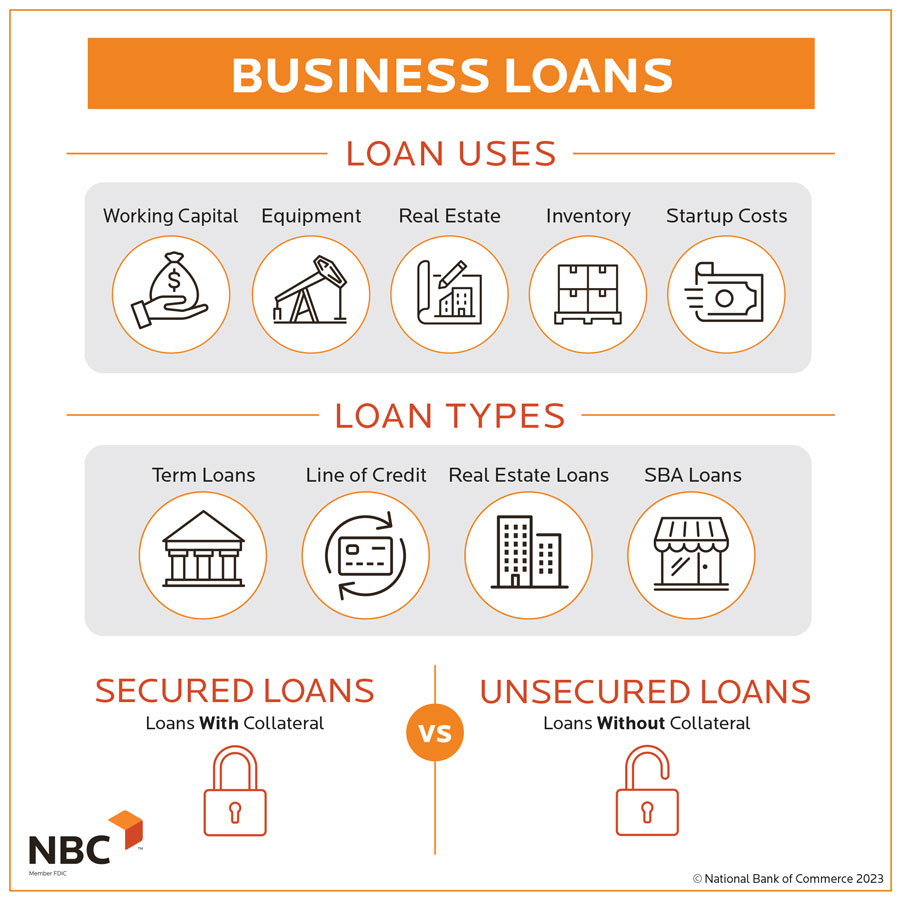In the dynamic world of business, financial resources are the lifeblood that fuels growth and innovation. Among the myriad of financing options available, business loans stand out as a cornerstone for entrepreneurs seeking to expand their ventures. This comprehensive guide will delve into the intricacies of business loans, providing a roadmap for navigating the loan application process and maximizing the benefits of this essential financial tool.
From understanding the different types of loans to deciphering the key factors that influence loan approval, this guide will equip you with the knowledge and strategies to secure the financing your business needs. Moreover, we will explore alternative financing options for those who may not qualify for traditional loans, ensuring that every business has access to the capital they need to thrive.
Contents
Loan Terms and Conditions
Understanding the terms and conditions of a business loan is crucial before signing the loan agreement. These terms Artikel the key aspects of the loan, including interest rates, repayment schedules, and covenants, which are essential for managing the loan effectively.
Interest Rates
Interest rates are the charges levied on the loan amount. They are typically expressed as an annual percentage rate (APR) and determine the total cost of borrowing. Understanding the interest rate structure, including any variable or fixed rates, is important for budgeting and forecasting loan expenses.
Repayment Schedules
Repayment schedules specify the frequency and amount of loan payments. They can be structured as monthly, quarterly, or annual installments. The schedule should align with the business’s cash flow to avoid default or late payment penalties.
Covenants
Covenants are restrictions or obligations imposed by the lender to ensure the borrower’s financial health and compliance with the loan agreement. They may include maintaining certain financial ratios, limiting debt levels, or obtaining additional collateral. Understanding the covenants and their potential impact is crucial for managing the loan and avoiding breaches.
Alternative Financing Options
For businesses that may not qualify for traditional loans, there are several alternative financing options available. These options can provide access to capital for a variety of purposes, including starting a new business, expanding an existing one, or purchasing equipment.
Alternative financing options typically have different terms and conditions than traditional loans. They may have higher interest rates, shorter repayment periods, and more restrictive covenants. However, they can also be more flexible and easier to obtain for businesses that do not meet the strict requirements of banks and other traditional lenders.
Crowdfunding
Crowdfunding is a way to raise money from a large number of people, typically through an online platform. Crowdfunding campaigns can be used to fund a variety of projects, including business startups, product development, and charitable causes.
- There are several different types of crowdfunding, including:
- Reward-based crowdfunding: Investors receive a reward, such as a product or service, in exchange for their investment.
- Equity crowdfunding: Investors receive an ownership stake in the business in exchange for their investment.
- Debt crowdfunding: Investors receive a loan that must be repaid with interest.
Venture Capital
Venture capital is a type of investment that is provided to early-stage businesses with high growth potential. Venture capital firms typically invest in businesses that are developing new products or technologies and have the potential to generate significant returns.
- Venture capital investments are typically made in exchange for an equity stake in the business.
- Venture capital firms typically have a long-term investment horizon and are willing to take on more risk than traditional lenders.
Other Non-Bank Financing Sources
In addition to crowdfunding and venture capital, there are a number of other non-bank financing sources available to businesses. These sources include:
- Merchant cash advances: A merchant cash advance is a short-term loan that is repaid through a percentage of the business’s daily credit card sales.
- Invoice factoring: Invoice factoring is a way to sell your unpaid invoices to a factoring company for a percentage of their value.
- Equipment leasing: Equipment leasing is a way to finance the purchase of equipment without having to pay the full cost upfront.
Final Conclusion

As you embark on the journey of securing a business loan, remember that preparation is paramount. By carefully crafting a compelling loan application, understanding the terms and conditions, and exploring alternative financing options, you can increase your chances of obtaining the funding your business needs.
Whether you are a seasoned entrepreneur or just starting out, this guide will serve as your trusted companion, empowering you to make informed decisions and unlock the full potential of your business.